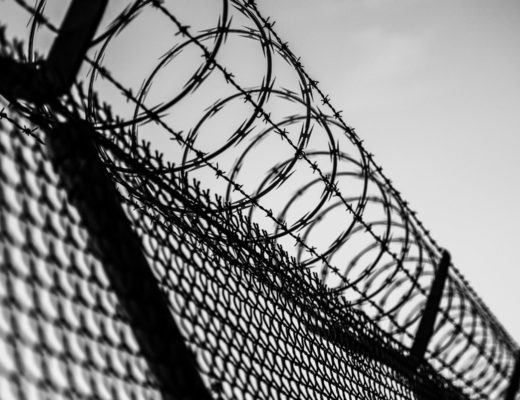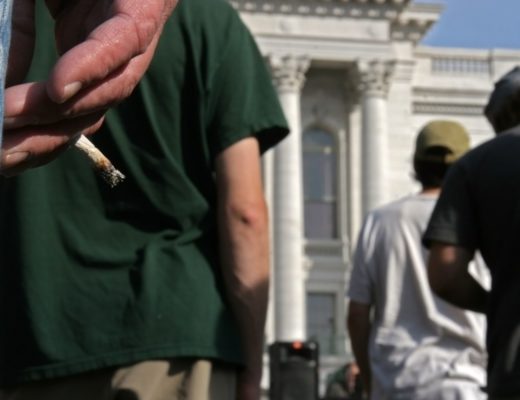The house has just passed the MORE act after failing 2 years ago to get it through the Senate.
At first glance, it seems like this bill holds numerous promises to the cannabis industry and those impacted by the War on Drugs. De-scheduling marijuana, resentencing, and expungement of non-violent cannabis convictions for example.
However, under the surface, there are numerous issues. If MORE passes the Senate this time around, we will see cannabis farmers and manufacturers crippled under enormous taxation. Facing significant monetary penalties and even potential jail time, innocent people will suffer under this cash grab in disguise.
Let’s go into the details about why the MORE Act is harmful, and why we deserve better legislation when it comes to decriminalization.
 What is the MORE Act?
What is the MORE Act?
MORE stands for Marijuana Opportunity Reinvestment and Expungement Act. It was originally introduced in 2020 but failed to be heard on the Senate floor.
Now the House has successfully re-introduced the bill with some minor edits. It is still unclear how the Senate will react this time.
In 2020, the Senate was controlled by Republicans who prevented the bill from even being voted on.
However, now that Democrats are in control, there is a slightly higher chance MORE may actually be heard this time. But whether or not it will pass and become law is still unknown.
What Will the MORE Act Do?
If MORE is able to pass, one of the biggest concerns of the Act is the higher taxation that will be imposed on cannabis manufacturers, farmers, and retailers.
The bill imposes a federal tax on all marijuana products. It will start as a 5% excise tax for the first two years. Then it will increase by 1% each year in the next three years — totaling 8%.
While the tax itself will put a huge financial strain on people, the penalties for failing to pay these new taxes are extreme, to say the least.
Under the criminal penalties section of the Act, those who fail to pay the tax will, “be fined not more than $10,000, or imprisoned not more than 5 years, or both”.
To place such a significant penalty on individuals in the industry is extreme and can land a lot of individuals in debt or jail.
 How Higher Taxes Hurt Both the Industry and Innocent People
How Higher Taxes Hurt Both the Industry and Innocent People
Currently, all cannabis must be grown, packaged, sold, and consumed in the state that deemed it legal. If the MORE Act is passed, it may become possible for marijuana to be sold interstate.
Meaning cannabis grown in California, for example, can be transported and sold in Massachusetts.
The ability to have the marijuana industry expand to include interstate trade means a huge opportunity for economic growth. Economic growth that’s desperately needed, especially for people of color and those from underserved communities who are already struggling in the industry.
Unfortunately, MORE will crush that economic potential. The excise tax the legislation will implement will hinder businesses by stacking taxes on top of one another.
There is also concern over how they will calculate the tax. Rather than measuring by potency or weight, MORE will implement a tax based on price. This is harmful for several reasons.
First, by taxing based on the retail price rather than potency or weight, there is no method for accounting for any externalities.
Externalities are any potential negative impact an industry might have on the environment or society. Taxes are often levied with these externalities in mind to keep them in check. But, since MORE is based on price alone none of those potential externalities are considered — which will hurt the industry and individuals in the long term.
Second, basing the tax on retail prices will hurt states if the MORE Act passes.
Unfortunately, states who have already legalized marijuana often establish taxes that are based on retail price. This is due to a lack of resources or established systems to measure otherwise.
It is predicted that once MORE passes, there will be a huge dip in prices. This will cause a similarly huge dip in revenue for those states who have already legalized. Plus, states who have not already legalized will have an undue advantage in being able to implement new harmful taxes and cut into the market.
Finally, it’s people who will suffer the most and gain the least from higher taxes.
There is likely no system in place to integrate the federal and state tax systems. Instead, taxes are going to be stacked and the ones who have to shoulder the burden are those trying to establish themselves in the cannabis industry.
If MORE passes, it will become nearly impossible for small businesses to survive or even start-up, unless they have enormous resources. This will disproportionately target disadvantaged individuals and POCs, who have also suffered the most from the War on Drugs.
We Must Decriminalize
In order to truly decriminalize and reverse some of the damages done by the War on Drugs, we must pass legislation that serves the people most impacted.
Putting higher taxes, fees, and fines on caretakers in the cannabis industry is not the correct path. The focus should be on eliminating any potential for people to serve jail time for cannabis — whether that be from possession or failure to pay fees.
The focus should also be on establishing a system between states and the federal government that allows small businesses to thrive. Not one that crushes them before they can even get started.
Overall, there are many issues with MORE that should be remedied before it’s enacted into law. After so many years of getting cannabis wrong, we need to make sure we get this right.





No Comments